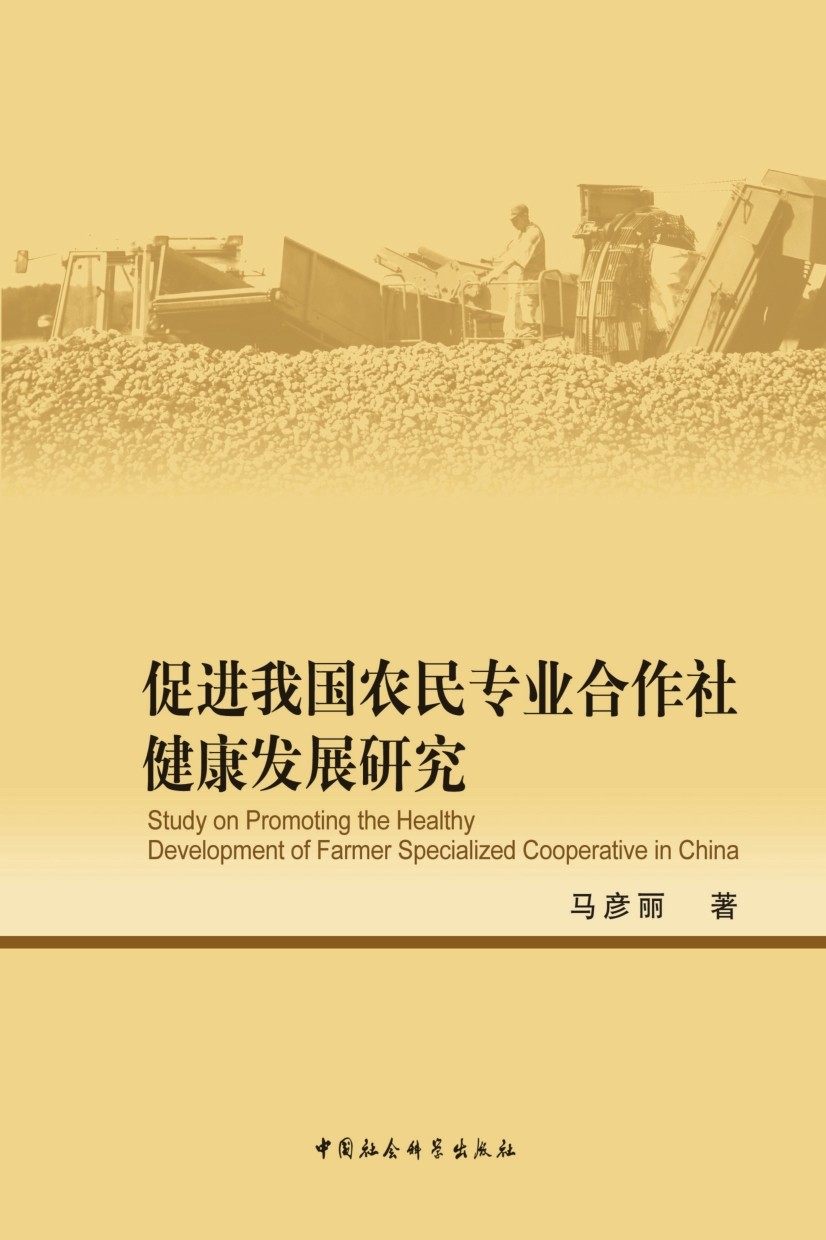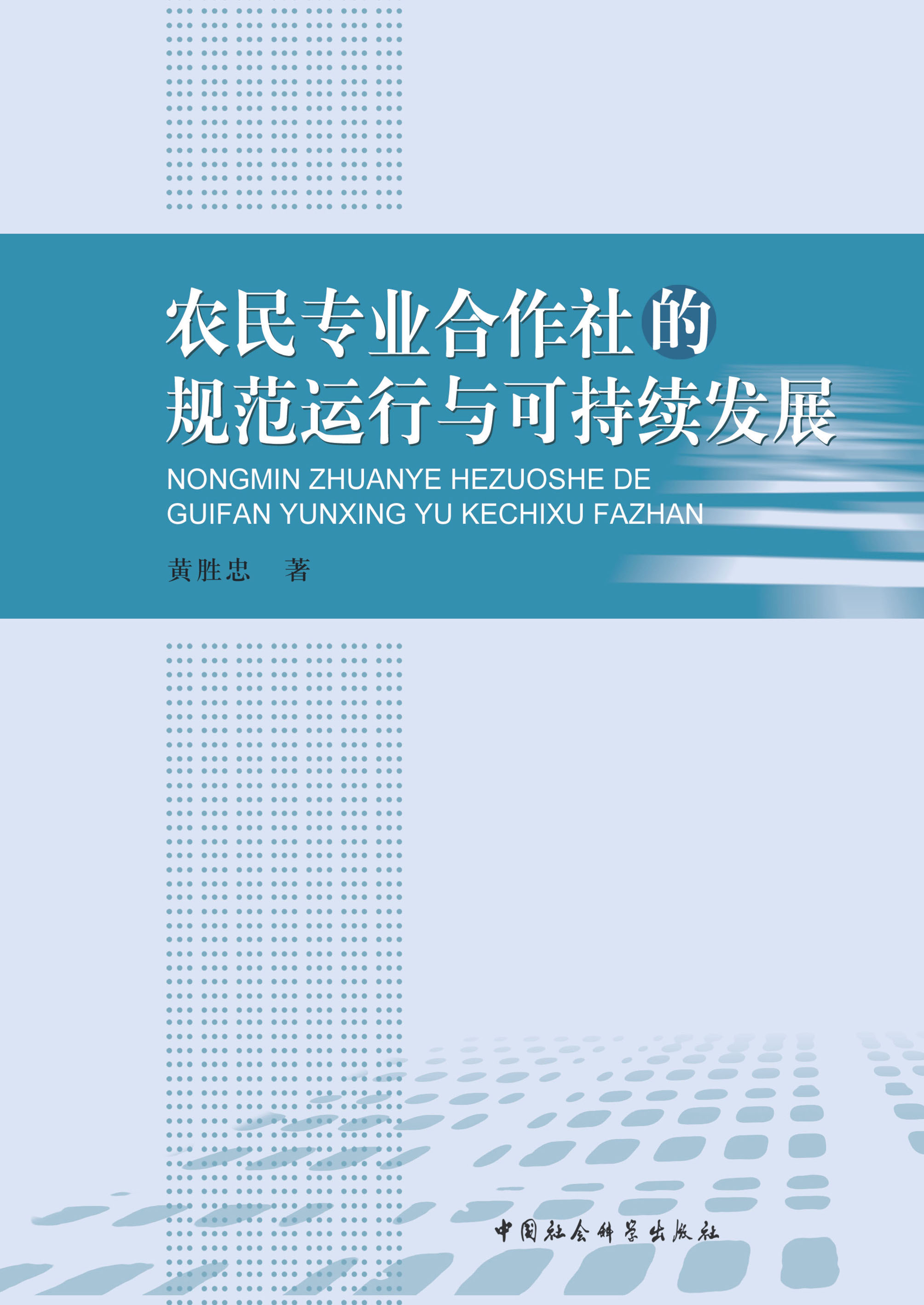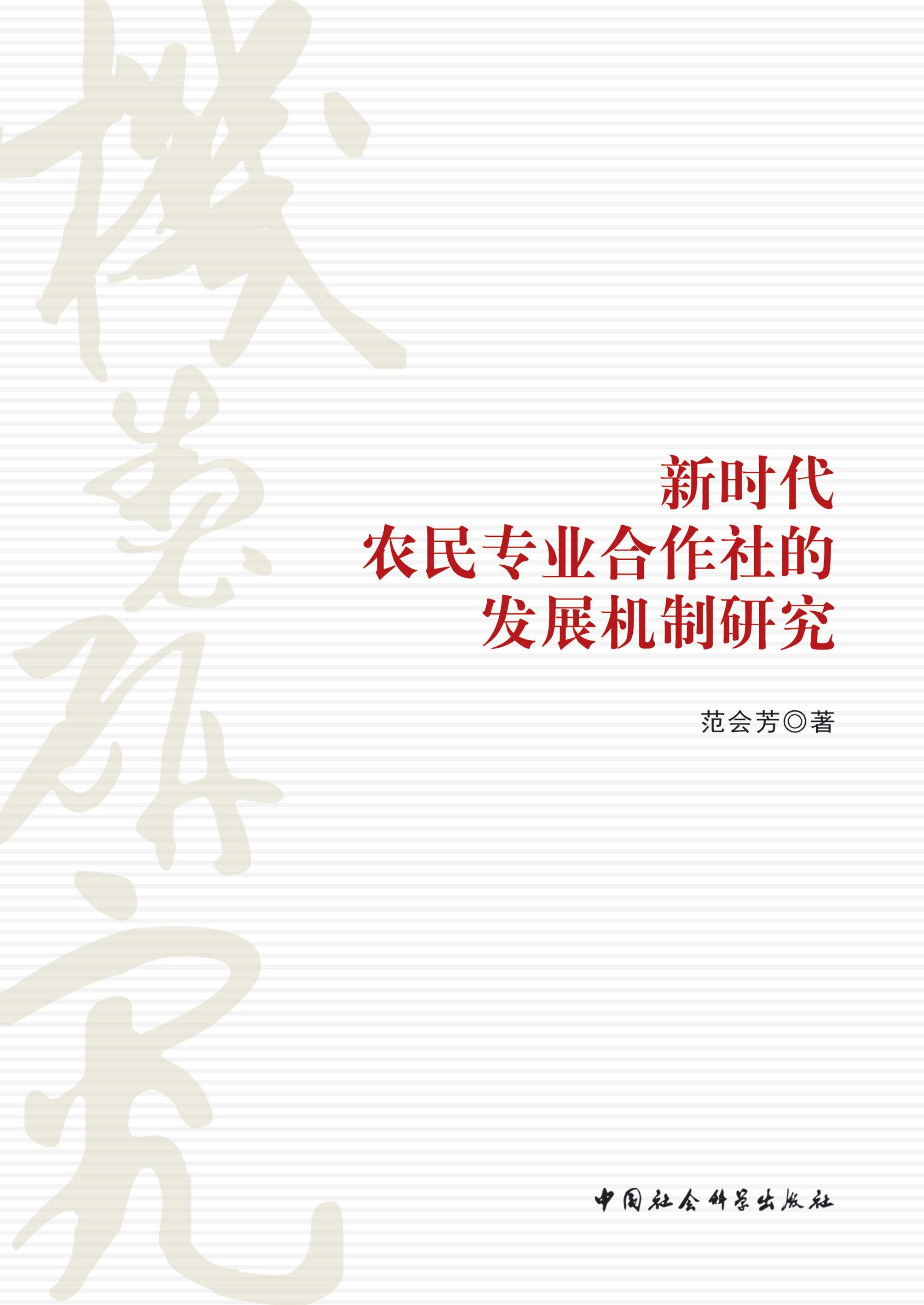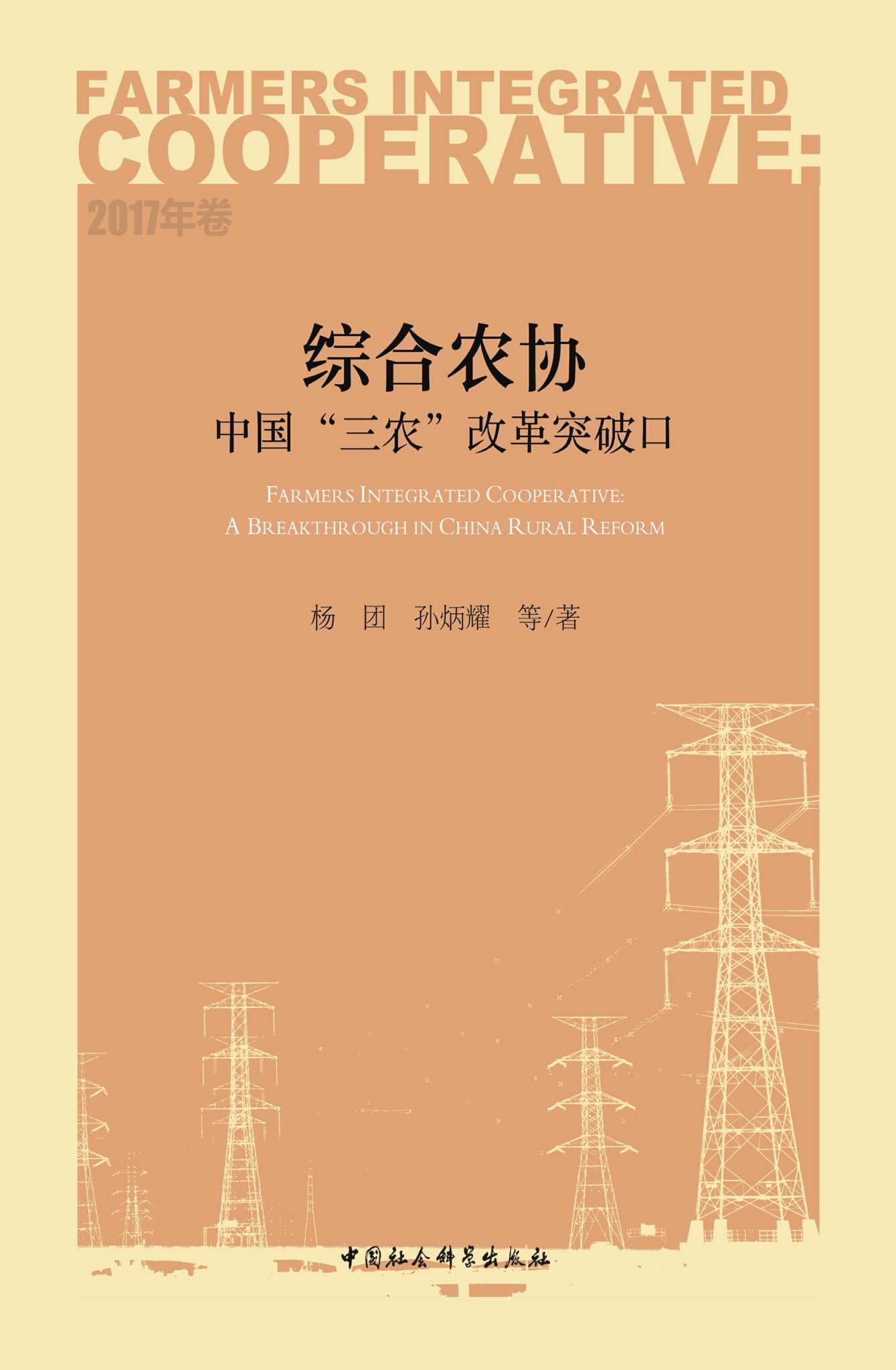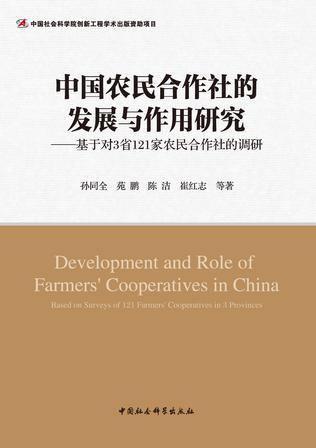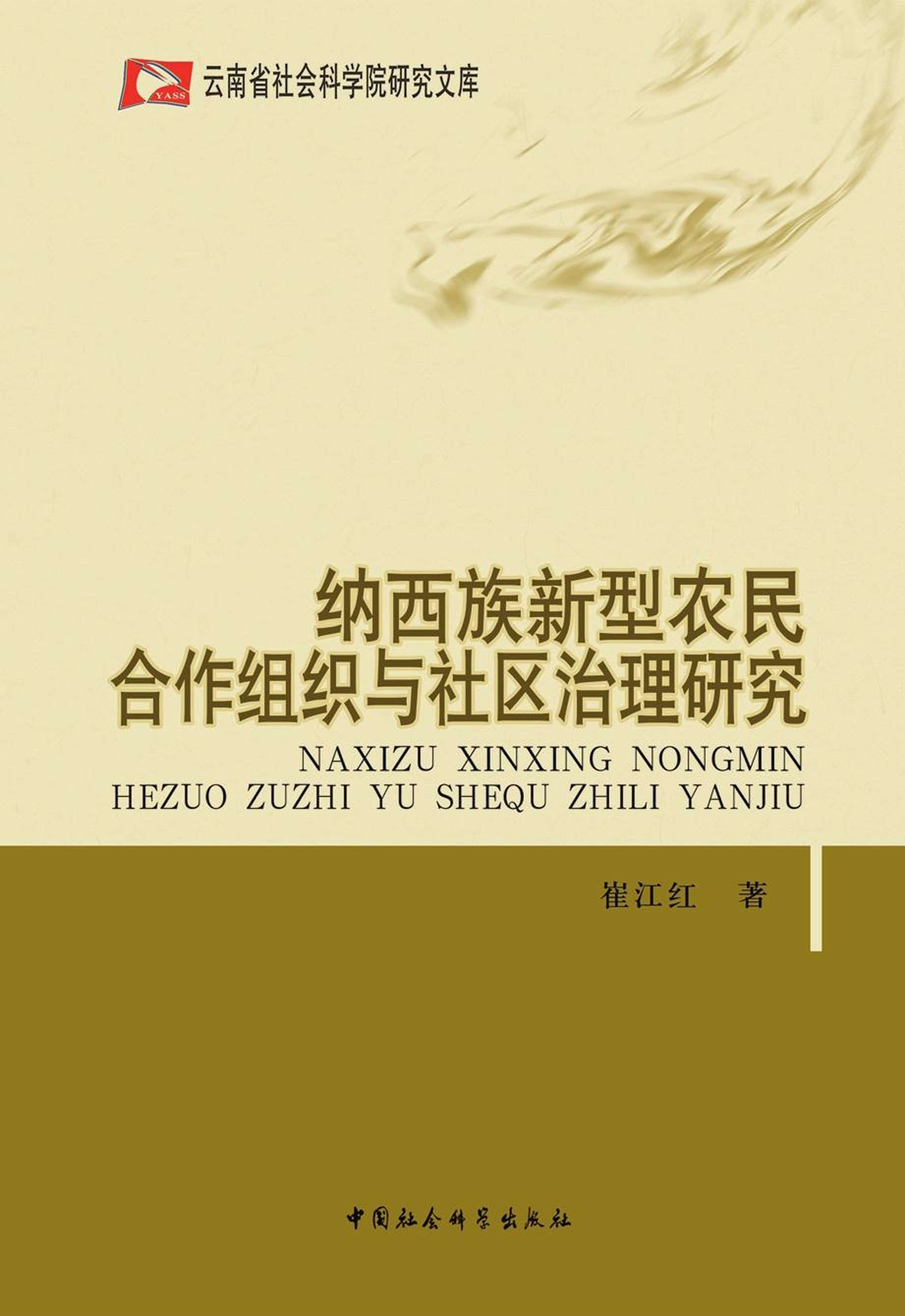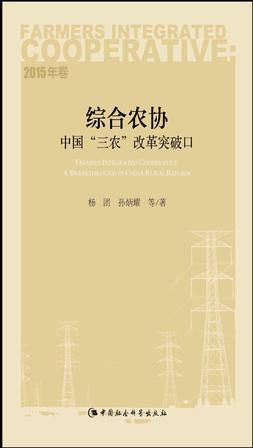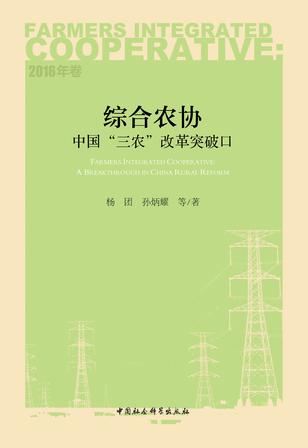内容简介
作者简介
目录
《中华人民共和国农民专业合作社法》颁布和生效以来,我国农民专业合作社进入跨越式增长阶段。但与此同时,合作社发展中也出现了很多问题。农民专业合作社总体上规模小、竞争力弱、带动力不强;我国农民专业合作社内部的制度安排也表现出充分的生态多样性,特别是部分合作社股份化色彩浓厚,通常被少数大股东所控制,普通农户受益不多,合作社异化现象严重。那么,在我国现有的约束条件下,农民专业合作社究竟有没有生命力?它是经济学家长期热情呼吁和政府鼓励的产物还是真正具有竞争力的新型经济组织?它在什么样的条件下才会产生和发展?又有多大的成长空间?现有的农民专业合作社究竟如何组织和运行?面临哪些问题?农户如何认识合作社?哪些农户愿意并且会加入合作社?政府又应当如何引导和规制合作社的发展?西方学者通常将欧美合作社发展赖以生存的环境(农业产业化、少量农业人口、大规模农业生产等)当做既定前提而很少重视,合作社的发展也已进入成熟阶段;我国农民生产规模很小,存在普遍的农民兼业现象,农业生产专业化程度较低,而且由于农民的分化使农户间存在明显的异质性,这使我国农民专业合作社的产生、发展以及内部的制度安排都具有鲜明的中国特色;此外,我国的农民专业合作社刚刚起步,遇到的问题与西方国家不同,因而不能不加取舍地套用西方的合作社理论。借鉴国际上的研究成果,面向中国实际,系统分析我国农民专业合作社发展过程中遇到的各种问题,对促进我国农民专业合作社健康发展十分必要。本书认为,健康的农民专业合作社应当:(1)其发展模式能适应我国农业发展的环境约束和发展阶段,从而有坚实的生存基础和广阔的发展空间;(2)产权结构清晰,治理机制完善,从而具有活力和生命力;(3)合作社的受益者是广大农户,从而能够吸引、带动农民;(4)合作社与其他各类农村组织有效对接,为农村经济和社会发展所需要。本书采用新制度经济学的理论框架,阐释合作社理论的一般,并通过针对合作社及社员两个层面的调研问卷,利用第一手调研资料,采用统计分析和计量分析手段,全面地反映我国农民专业合作社的发展情况,发现问题,总结规律,并为促进我国农民专业合作社的健康发展提供思路和建议。第一章介绍合作社一般理论,为之后的研究提供理论支持和参照系。分别从主流经济学和新制度经济学的视角介绍合作社产生的合理性,并进而探讨合作社的产权界定和制度变迁问题。本书认为合作社制度的核心是实现“社员所有、社员控制和社员受益”,无论制度如何演化,都应按照上述原则对合作社进行识别和判定。该章最后介绍了各国政府对农业合作社的扶持政策、手段以及学者对政府扶持政策的质疑,为我国政府制定针对合作社的扶持政策提供参考。第二章介绍我国农民专业合作社的发展历史和背景。该章开篇首先回顾了新中国成立前由爱国知识分子在中国倡导的合作社实验、国民政府推进的促进农业合作社发展的政策以及新中国成立后的“合作化运动”。而新时期的农民专业合作社是我国农民在市场环境下因利益驱动而进行的制度创新,是对合作社传统的回归。由于我国农民生产规模很小,存在普遍的农民兼业现象,农业生产专业化程度较低,而且由于农民的分化使农户间存在明显的异质性,这一背景将显著影响我国农民专业合作社的发展空间和制度安排。此外,鉴于我国农民合作运动历史曲折,实践中出现多种类型的与“合作”有关的农民经济和社会组织,该章对相关概念进行了深入剖析,澄清了一些常见的概念误区。第三章以合作社层面的问卷调查为基础,考察合作社的基本情况。研究发现:(1)经历了合作社法颁布后的爆发性增长阶段,目前合作社的发展开始步入调整期;少数实力较为雄厚的合作社与多数中小规模的合作社共存;多数农民专业合作社的业务活动局限于产业链上的初级阶段。(2)我国农民专业合作社的社员异质性非常明显,导致部分合作社的制度安排偏离了合作社的本质。核心社员根据《农民专业合作社法》向外围社员让渡了部分投票权和剩余分配权,但通过控制合作社的理事会控制合作社,成为合作社中的主要受益者。虽然这样的制度安排符合企业所有权配置的效率原则,但是不符合政府以及社会对农民专业合作社发展的期望,也与政府给予合作社的各项优惠政策的基础相冲突。(3)目前合作社运营中遇到的主要困难集中在资金不足、人才缺乏以及政府的扶持政策落实不到位等方面。第四章以来自13个合作社空间覆盖范围内的合作社社员和未入社农户的问卷调查为基础,了解农户视角中的合作社,分析农户加入合作社的意愿、行为和影响因素,并特别关注社员和非社员的比较以及农户加入合作社的意愿到行为的转化障碍。研究发现:受教育程度低并且兼业特征明显的弱势农户更愿意加入合作社;然而,农户入社行为并不全基于其对合作社的需求意愿,更多地受到其他因素(如外部环境)的影响;真正入社的农户年龄集中在50岁左右;农户对“紧密型”的合作社表现出明显偏好,但并无选择余地;加强合作社知识宣传对农户的入社意愿和行为有显著正向影响。第五章首先对我国农民专业合作社发展情况作出基本判定,并根据理论分析和实证研究的成果提出了促进我国农民专业合作社发展应该把握的基本原则和思路。认为:要促进农民专业合作社的健康发展,首先要对合作社的发展空间有明确的认识,并有选择性地鼓励符合农民专业合作社性质的合作社发展。除进一步完善合作社立法外,建立健全合作社的财务制度是合作社规范发展的前提,探索有效的、制度化的合作社扶持措施非常必要。推动地方乃至全国性的合作社协会的发展、促进合作社间的联合、扶持合作社的科研和培训机构、注重合作社知识的传播等措施虽然不能立竿见影,但可以为农民专业合作社的长期健康发展奠定基础。关键词:农民专业合作社;健康发展;制度分析;实证分析AbstractFarmer specialized cooperative in China have entered a phase of growth by leaps and bounds,since the law of People's Republic of China on specialized farmer cooperative was enacted and took effect.But at the same time,the development of farmer specialized cooperative is confronted with many problems,such as small production scales,low competitiveness and weak driving force.The internal institutional arrangements of farmer specialized cooperative in China also show the full ecological diversity.Especially in some farmer specialized cooperative,there is a strong sense of demutualization and these organizations are usually controlled by few large shareholders.In these cooperatives,fewer ordinary farmers benefits,leaving the farmer specialized cooperative an obvious heterogeneous organization.So is there any vitality for the growth of farmer specialized cooperative under the existing constraints in China?Is it the product that economists called for and government encouraged enthusiastically for a long time or a real new competitive economic organization?In which conditions will the farmer specialized cooperative emerge and develop?And how much growth room will it have?What exactly the way to organize and operate the farmer specialized cooperative at the moment?What problems are they facing with?For farmers,how should they understand the farmer specialized cooperative and who has the will and finally join the farmer specialized cooperative?What should government do to guide and regulate the development of farmer specialized cooperative?Western scholars usually consider the surroundings,(agricultural industrialization,small agricultural population,large-scale agricultural production)on which Cooperatives of Europe and America are indispensable to the survival and development,as established preconditions and rarely pay enough attention.Farmer specialized cooperative in these countries have entered the mature stage.While in China,farmers only have small scale of production,sideline activities are quite common among farmers,the specialization of agricultural production are in a low degree and the differentiation between farm households give rise to an obvious heterogeneity,all the facts described above makes the generation,development and the internal institutional arrangement of farmer specialized cooperative with distinctive Chinese characteristics.In addition,since the process of farmer specialized cooperative in China has just started,We shouldn't totally copy Western Agricultural Cooperative Theories.Draw on the international research on the basis of the reality of China,systematic analysis on various problems encountered in the development process of farmer specialized cooperative are necessary to promote the healthy development of farmer specialized cooperative in China.The book identifies that a well-organized farmer specialized cooperative should include the following:1)the development patterns should adapted to the restrictions of environment and stage of development in China thus to have a solid survival foundation and broad development space.2)clarify Poverty Rights and perfect the governance mechanism to make farmer specialized cooperative have more vigor and vitality.3)Beneficiaries of the farmer specialized cooperative are the majority of farmers,and will attract other farmers to join.4)farmer specialized co operative should connect with other kinds of rural organizations effectively to meet the rural economic and social development.The book uses the theoretical framework of New Institutional Economics to illustrate the general theory.By making two levels of investigations,both from farmer specialized cooperative and its members,using the firsthand information and adopting statistics analysis and econometric analysis measures,the author identifies problems,sums up the law,reflects the development of farmer specialized cooperative in China and finally provides ideas and suggestions to promote the sound development of farmer specialized cooperative.Chapter 1 introduces the general theory of farmer specialized cooperative,providing theoretical support and frame of reference for future research.The author analyzes the reasonable appearance of farmer specialized cooperative on perspective of Mainstream Economy and New Institutional Economy and discussed Property Right definition and institutional changes.The book's view is the core of the farmer specialized cooperative is to achieve“jointly owned,democratically controlled and benefits farmer members”.However the system evolvement,we should make judgments and recognitions according to the above principle.At the end of this chapter,the supporting policies from governments all over the world and the scholars' doubts about the policy of supporting are given to provide reference for the formulation support policy of farmer specialized cooperative in China.Chapter 2 is on‘the development history and the background of farmer specialized cooperative in China.Review the test of farmer specialized cooperative that were advocated by patriotic intellectuals,the promotion of the development of farmer specialized cooperative during the National Government as well as‘Cooperative’movement after the founding of PRC.In the New Period,farmer specialized cooperative are the products of system innovation.Farmers are driven by profits under the market economy environment sets up farmer specialized cooperative,which is also a return to traditional farmer specialized cooperative.The small scale of production,the commonly exists in sideline activities and the low degree of specialization in agricultural production significantly influence the development space and system arrangement of farmer specialized cooperative.In addition,the tortuous history of“Cooperation”movement results in many kinds of economic and social organizations that are related to“cooperation”in practice.This chapter analyzes related concept thoroughly and clarify some common misunderstand concepts.Chapter 3 investigates the basic conditions of situation on the basis of questionnaires.The study founds that:1)the farmer specialized cooperative have experienced the stage of explosive growth since the law of People's Republic of china on specialized farmer cooperative enacted.Currently,the development of farmer specialized cooperative just entered the adjust period,minority strong forces are coexistence with majority small and medium ones.In most farmer specialized cooperative,business activities are limited to initial phase of industrial chains.2)heterogeneities are so obvious that the system arrangement of some farmer specialized cooperative have deviated from the essence.Core members who pass some of the voting and surplus distribution rights over to the peripheral members,but can still control the farmer specialized cooperative by taking control of the council and become main beneficiaries.Although such system arrangements fit with the efficiency principle of allocation of corporate property,they don't meet the expectations of government and society.Also the arrangements are conflict with the foundation of the various preferential policies.3)at present,the operation of farmer specialized cooperative are faced with difficulties such as insufficient capital,shortage of talents and inappropriate implementation of policy,etc.Chapter 4 Based on questionnaires of both members and nonmembers from 13 farmer specialized cooperative that covered within space,The author learned the farmer specialized cooperative from farmers’points of view,analyzed the farmers’willingness,behavior and influential factors to join the farmer specialized cooperative,and pay particular attention to the comparison between members and nonmembers and the obstacle that turn the farmers’willingness into behavior.The study results show that:vulnerable farmers,who have lower level education and show obvious feature of sideline activities are more willing to join farmer specialized cooperative.Nevertheless,their behaviors are not totally based on their needs and willingness,that is,they are more influenced by other factors(external environment).These farmers,who finally joined the farmer specialized cooperative,are at the average age of 50.And farmers show a preference for intensive farmer specialized cooperative,however they have no choice.Strengthen the promotion of farmer specialized cooperative knowledge will have positive relationship to farmers’willingness and behaviors.Chapter 5 firstly makes the basic judgments of the development of farmer specialized cooperative and then put forward principle and ideas that we should use to promote the development of farmer specialized cooperative,according to theoretical analysis and empirical research.The book proposes that,in order to boost the healthy development of farmer specialized cooperative,the first thing to do is to have a clear understanding of development space and encourage the development of farmer specialized cooperative which is conform to the nature of farmer specialized cooperative.Besides further improvement on the legislation of farm er specialized cooperative,to establish and improve the accounting system is the precondition of the standard development of farmer specialized cooperative.To explore efficient and systematic support measures are quite necessary.The promotion of development of local or even national organizations,enhancement of the combination between farmer specialized cooperatives,support of the research and training institutions of farmer specialized cooperative and the attention to the spread of knowledge of farmer specialized cooperative may not have instant results,but can lay the foundation for longterm sound development of farmer specialized cooperative.Key words:Farmer specialized cooperative;Healthy development;Institutional Analysis;Empirical analysis
全部显示∨
导论一 研究背景和选题依据
二 国内外研究现状述评
三 本书的研究思路
四 重点难点及创新和不足
第一章 合作社一般理论第一节 合作社的内涵和外延一 什么是合作社
二 透过合作原则理解合作社的内涵
三 合作社与投资者导向企业的区别
四 农业合作社与其他商业组织形式的关系
五 农业合作社及其在各国的发展
第二节 主流经济学对农业合作社存在及其合理性的解释一 应对市场失灵
二 实现范围经济
三 获取价值链上其他环节的利益增值
四 提供缺失的服务
五 保障生产投入品供应和产品销售渠道
六 从供应链的纵向合作中获益
七 社员共担风险
八 通过合法垄断获取市场权力
九 成为市场竞争尺度
第三节 从新制度经济学视角看农业合作社的合理性与发展空间一 与农民交易时,农业合作社是节约交易费用的制度安排
二 交易费用、组织成本与合作社的发展空间
第四节 产权界定与合作社的组织效率一 合作社“模糊界定的产权”及问题
二 从博弈的视角理解合作社产权界定的经济合理性
三 环境变化与合作社明确界定产权的努力
四 产权界定的绩效
第五节 制度变迁与合作社的本质
第六节 政府扶持与合作社的发展一 政府与合作社的关系
二 政府扶持农业合作社发展的依据
三 政府扶持农业合作社发展的手段
四 对政府扶持农业合作社观点的质疑及评论
本章小结
第二章 我国农民专业合作社发展的历史、背景和约束条件第一节 新中国成立前的农业合作社试验
第二节 新中国成立后的合作运动和合作社发展一 作为社会主义改造手段的合作运动
二 新时期的农民制度创新
第三节 我国“农民专业合作社”的内涵一 解读“农民专业合作社”与各类“合作”组织的异同
二 我国“农民专业合作社”的内涵
第四节 我国的农业生产背景与农民专业合作社的发展一 我国农民专业合作社发展的约束条件
二 对我国农民专业合作社发展空间的影响
本章小结
第三章 我国农民专业合作社发展实践——基于合作社层面的调研第一节 农民专业合作社发展的基本情况说明一 样本合作社的发展历程及分类
二 合作社的规模描述
三 合作社在农产品产业链上的位置
第二节 农民专业合作社内部的制度安排一 合作社的社员异质性分析
二 合作社的治理结构
三 合作社的盈余分配
四 合作社其他方面的制度安排
五 社员的异质性对合作社制度安排的影响
第三节 合作社在经营中遇到的困难和原因剖析一 合作社运行中遇到的困难
二 对合作社遇到的各项经营障碍的原因剖析
三 社员对合作社服务的需求是合作社发展的肥沃土壤
第四章 我国农民专业合作社发展实践——基于社员层面的调研一 问题的提出
二 相关文献综述与研究假设
三 问卷设计和调研情况说明
四 样本与变量的描述性统计
五 农户参与合作社意愿及行为影响因素的计量分析
第五章 对我国农民专业合作社发展情况的基本判定和今后的发展思路第一节 对我国农民专业合作社发展情况的基本判定一 经历几年的爆炸性增长后,合作社的发展开始进入调整阶段
二 大多数小规模的合作社与少数大中规模的合作社共存
三 农民对合作社服务的广泛需求是合作社发展的肥沃土壤
四 资金问题是农民专业合作社发展的主要障碍
五 合作社知识缺乏影响农民专业合作社的发展空间和方向
六部分农民专业合作社偏离了传统合作社的本质
七 财务制度不健全,削弱了合作社的发展基础
八 过分强调“产业化”背景,使其他类型合作社的发展受限
第二节 促进我国农民专业合作社健康发展的原则和基本思路一 促进农民专业合作社健康发展必须把握的两个原则
二 促进农民专业合作社健康发展的基本思路
第三节 促进农民专业合作社健康发展的具体措施一 进一步完善我国农民合作社立法
二 探索有效的、制度化的合作社扶持措施
三 建立健全合作社的财务和会计制度
四 鼓励发展针对合作社的有效融资方式
五 促进合作社间的联合
六 支持地方乃至全国性的合作社协会的发展
七 注重合作社知识的传播,扶持合作社的科研和培训机构
附录Ⅰ 中国农民专业合作社调查问卷
附录Ⅱ
参考文献
后记
该书无电子版哦,想阅读点购买纸书吧,现在还在打折喔(⊙o⊙)
